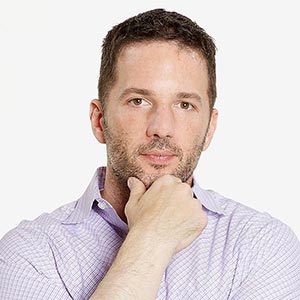I’m a Terrible Listener — Here’s Why, and Why It Matters

I’m a terrible listener. I’m not just bad at listening — I’m really, really bad at listening.
Now you may be asking yourself, as the reader, why should you care? Maybe you shouldn’t. But, if you’re in a leadership role, or will be one day, you can potentially learn from my mistakes. If you’re not in a leadership role, then you can better understand why others don’t listen well. And if you can peek into their mental universe, maybe you can help them change.
In order for me to get to the root of my own listening issues, I need to focus on two questions: why am I a bad listener and can I change?
Let’s deal with the why first.
To put it bluntly, I’m a little too self-centered, impatient, too sure of myself, and arrogant at times. There are a myriad of psychological reasons for this that I don’t have time to get into now, but even though it hurts to write these words, they’re true.
Secondly, I’m very busy. That’s the price of entrepreneurship to a degree. It’s also a trap that I’ve set for myself. We create our own “busy” prisons many times.
Third, I’m one of Nebo’s founders. As such, people defer to me. They agree with me by default at times. They always listen to me.
This creates the illusion that I’m right more than I am. It also means that others think I’m right, even if they subconsciously disagree.
It’s a virtuous loop. This process is self-sustaining. I get positive reinforcement the more people listen to me and the more they agree with me. This means my learning brain learns not to listen. And peers and colleagues learn to listen to me first, rather than fight for equal time or for what they want to say and believe.
Fourth, I’m also super-passionate. I get excited. I want to charge forward. This means listening can get skipped.
Fifth, I also have more experience and deep knowledge in certain areas, which means I tend to know the “why” behind why we do things compared to many of my colleagues. This often leads to an arrogant point of view — I think the people I’m talking to just can’t see what I see or know what I know.
Finally, I think fast — really fast. Part of it being intrinsic, part of it by necessity, and part of it out of habit. I also think all of the time. I’m a strange combination of an introvert that can play an extrovert when I need to. This means that even when I’m present, I’m not always present. It makes me seem like an asshole. I don’t want to be an asshole. I don’t mean to be an asshole. But by being stuck in my own head, I come across like an asshole.
The impact is obvious. We miss out on better ideas, different points of view, and additional knowledge. There’s a lack of competition of ideas, which means the best ideas don’t make it outside of my bubble. Moreover, team morale is lower.
The bigger question is, can I change?
That is complicated. Change is hard — really hard. I have a lifetime of habits and years of career experience that created my not-listening monster.
However, a big part of change is accountability. Writing this blog post is the first step in creating that accountability. By publicly acknowledging the problem, I can have my friends, family, peers, colleagues, and anyone in my life help hold me accountable.
I also know that to make Nebo better, this change is necessary. We’re growing. The people closest to me know how to get me to listen, because I’ve worked with them for so long that we know each other’s’ strengths and weaknesses in very deep ways. We know how to communicate. We know how to push each other.
New hires don’t know how to do that — they don’t know me in that way. They’re scared to speak up. They don’t know how to push back on an agency co-founder. So as we grow and scale, it’s irresponsible and bad for the organization for me not to develop better listening skills.
I don’t know that I can ever be a great listener. That’s a huge mountain to climb. However, I can get better. Hopefully writing and publishing this post will force me to improve. I also hope it gives the people in my life a greater ability to call me out on my BS. To truly engage in two-way conversations. To make me better. To make me listen.
We expect everyone on our team to learn and grow. We expect them to improve on their weaknesses and hone their strengths. To get feedback from people like me and evolve. We expect them to listen.
Why should I be any different?

Comments
Add A CommentGreat accountability tactic & genuinely sincere. Best of luck!